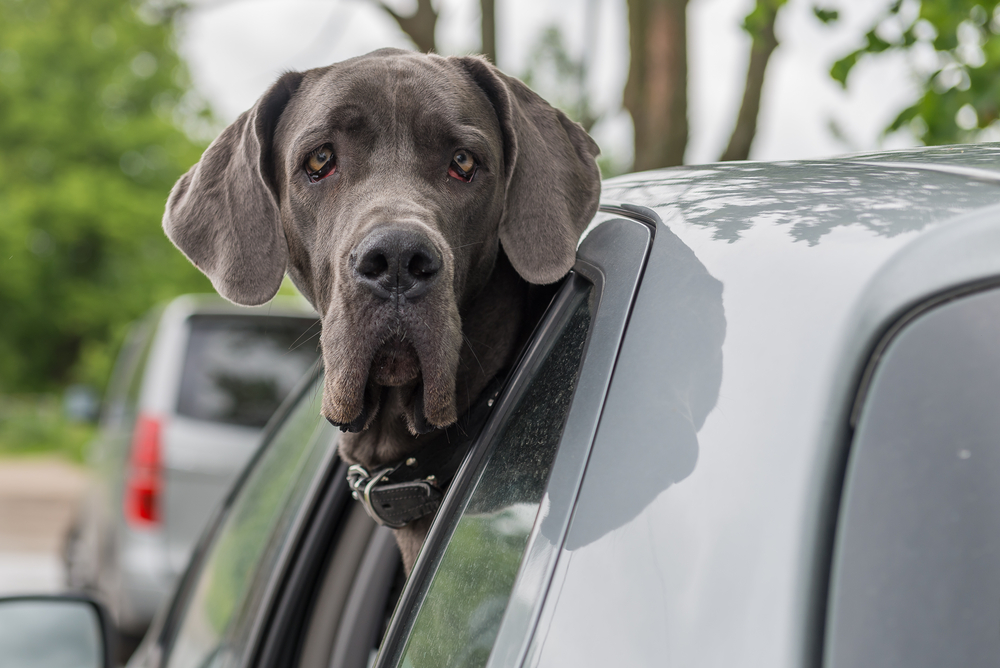5 Big Dog Problems
Big dogs are big on love. With their loving personalities and huggable bodies, it is hard to think about any big dog problems they might bring. Unfortunately, there are health issues that affect large dog breeds more than others. The best way to give your big dog the best chance at a long, healthy life is to know about these potential issues so you can spot them early. Here are four of the most common big dog problems:
Big Dog Problems: Hip Dysplasia
Many larger breeds are susceptible to hip dysplasia. This condition occurs when the joints do not form correctly. Over time, this can make the hip joint dislocate and create arthritic, painful joints. Dogs with hip dysplasia might exhibit lameness in the back of the body, trouble moving, or a decreased desire to walk. Although other factors (like nutrition) can increase risk, hip dysplasia is usually a genetic condition affecting breeds like:
- German Shepherds
- Great Danes
- Saint Bernards
- Labradors
- Golden Retrievers
If you notice any changes in your big dog’s movement, it is important to schedule a visit with your veterinarian. The medical team can help you find a way to reduce discomfort and help your dog feel his best. Hip dysplasia does not have to keep your dog from living a full life.
Big Dog Problems: Arthritis
The size and weight of larger breeds can increase their risk for conditions like arthritis. Dogs who develop arthritis will have stiffness of the joints that affects mobility. There are a variety of treatment options that can help. These include:
- Medication
- Laser therapy
- Hydrotherapy
- Acupuncture
- Weight management
- Shockwave therapy
- Surgery
Big Dog Problems: Dilated Cardiomyopathy
A big dog’s heart needs to work extra hard to power their body (and all their love). Over time, this can cause the heart to degenerate, which means it can no longer properly pump blood through the body. The condition might seem to come out of nowhere, but takes a while to fully develop. If you notice any of the following, schedule a veterinary visit for your dog:
- Rapid breathing while at rest
- Difficulty breathing (when it seems like an effort)
- Restless sleeping
- Coughing
- Physical weakness
- Decreased appetite
- Change in behavior
Dilated cardiomyopathy is a serious condition that requires veterinary attention. Pay attention to your dog’s affect and behavior and call your vet right away if you notice any significant changes.
Big Dog Problems: Bloat
Also known as gastric dilatation and volvulus syndrome, bloat is a serious condition that affects large breeds. When bloat occurs, the stomach increases in size and twists. This misplacement cuts off blood supply to both the stomach and the spleen and can be fatal. Large breeds that have deep chests like Weimaraner are the most likely to suffer from bloat. Signs of bloat include:
- Restlessness
- Obvious discomfort
- Distended abdomen
- Vomiting
- Shallow breathing
Big Dog Problems: ACL Tears
Many big dogs suffer from tears to the anterior cruciate ligament (ACL). The ACL is the connective tissue in the center of the knee of the back legs. A dog might tear the tissue from exercising too hard, from not exercising enough, or from doing too much physical activity in a short time. Most ACL tears can heal on their own if the dog remains imobile. Accessories like orthopedic braces or even supplements can also improve the chances of healing. Sometimes surgery is required. If you think your dog has injured his ACL, schedule a visit with your veterinarian to find out the best course of treatment.
At Union Lake Veterinary Hospital, we love big dogs and all the joy they bring. Our caring team is here to monitor your dog’s health throughout his life. From wellness visits to pain management, we have the veterinary services you need to address potential big dog problems and give your dog the best life. To learn more about our hospital or to schedule an appointment, call (248-363-1508).

